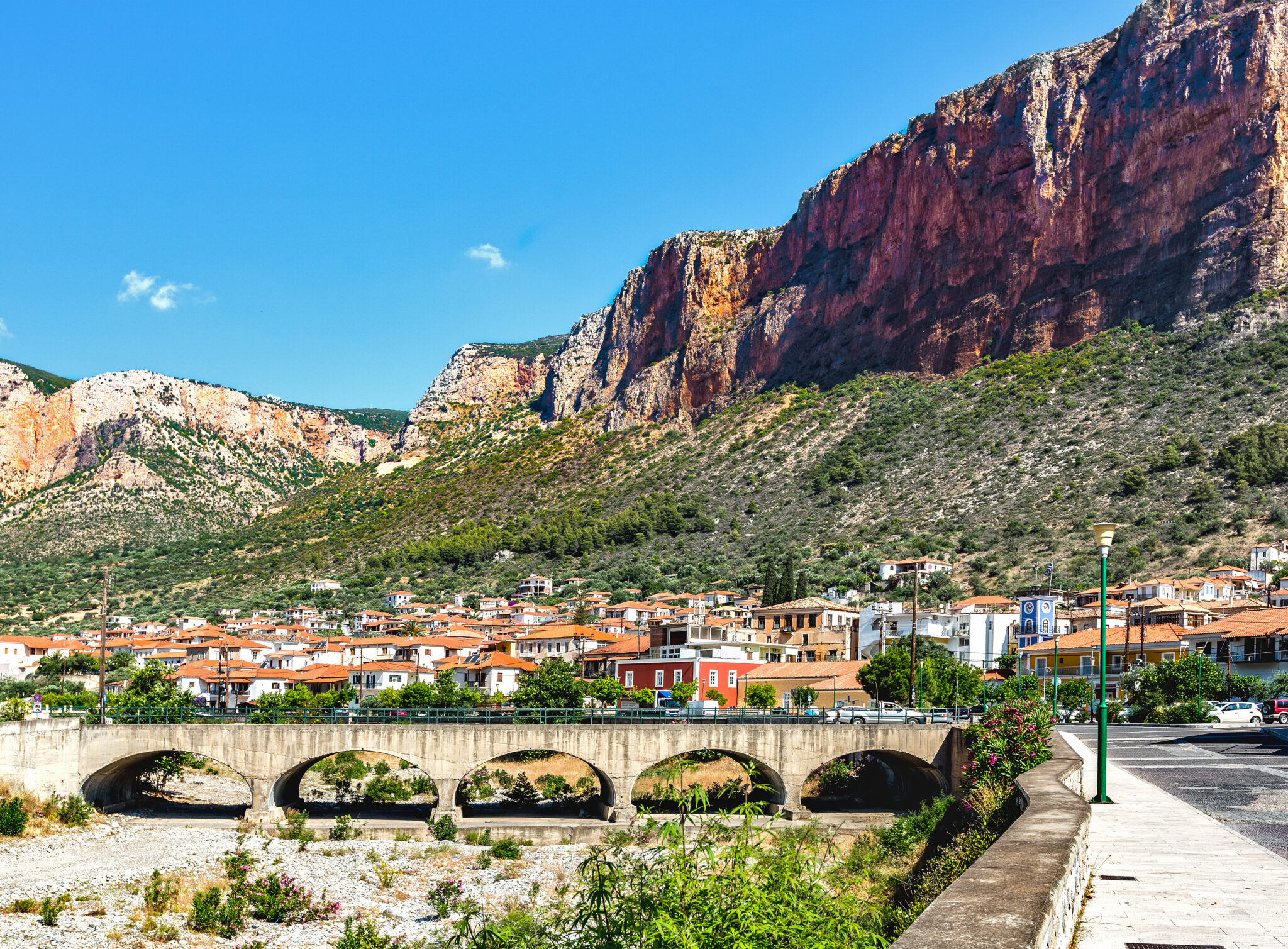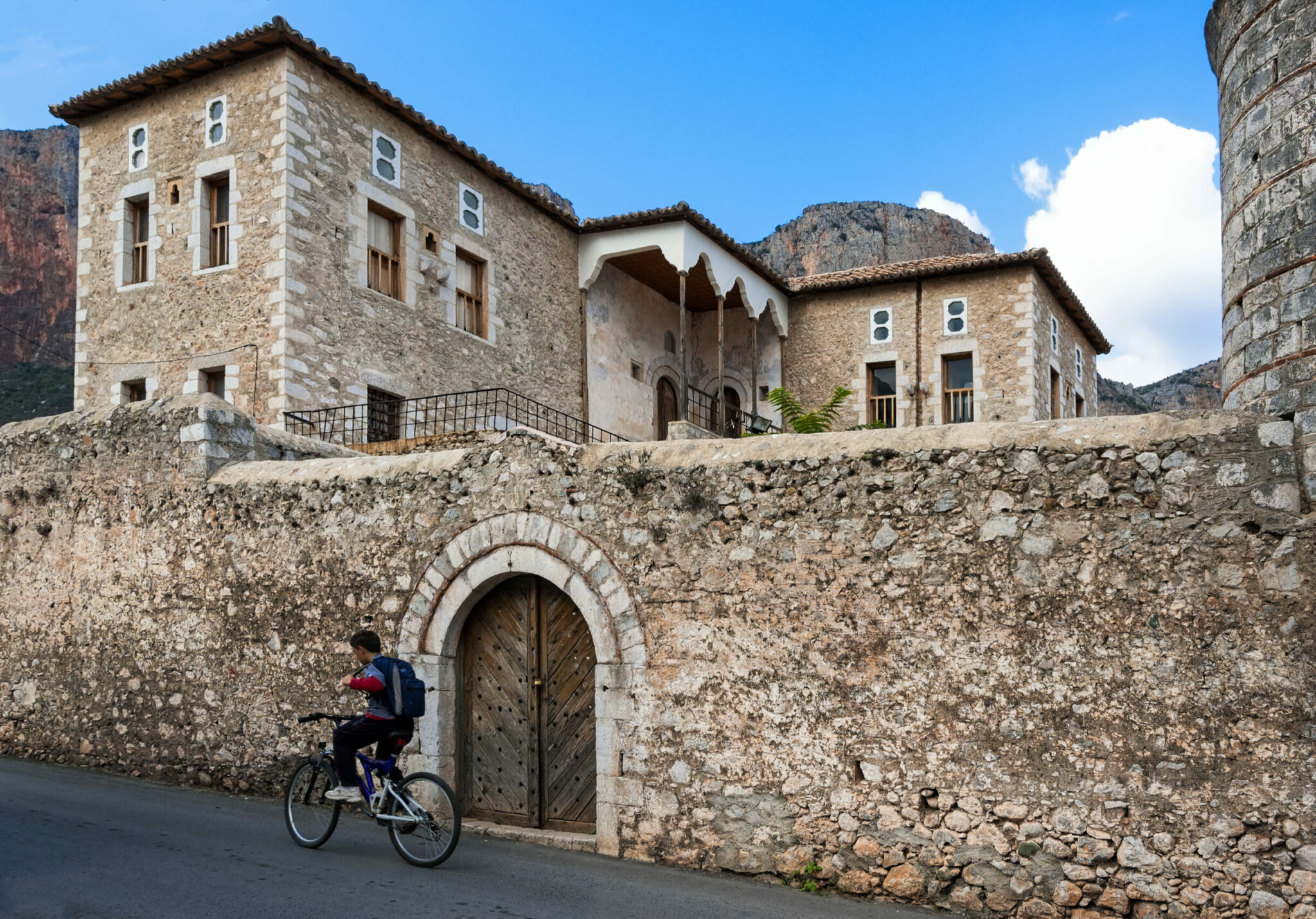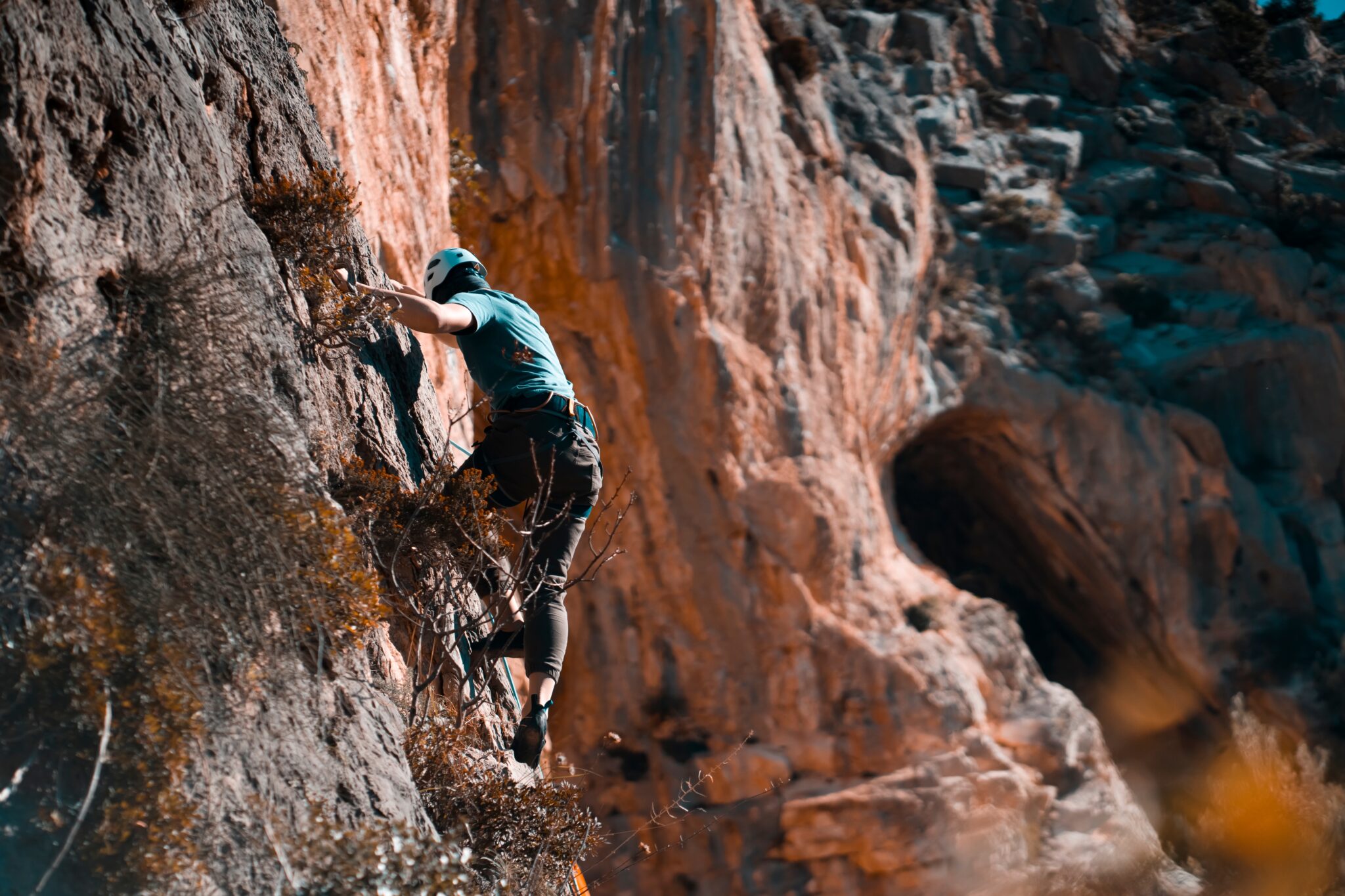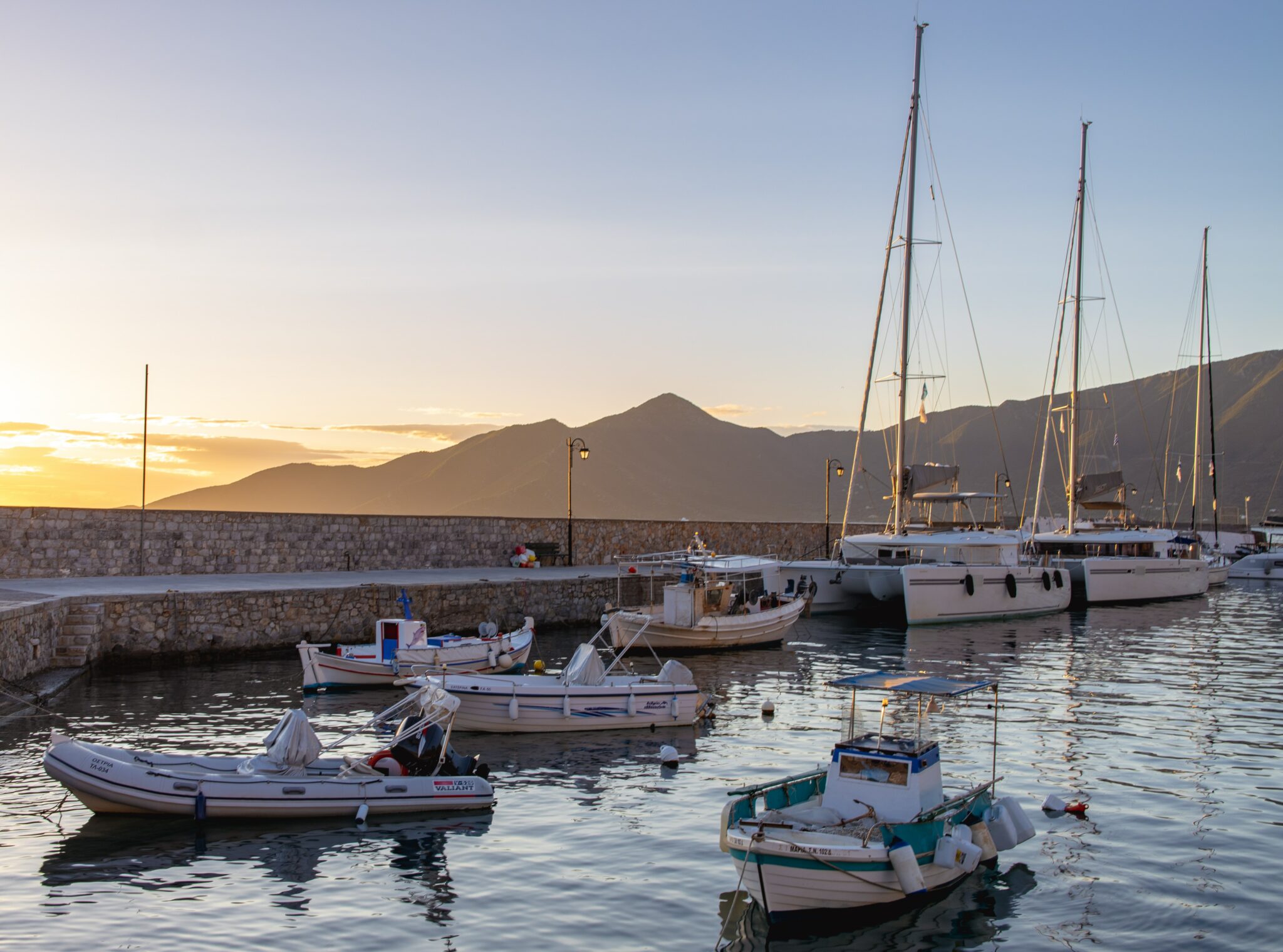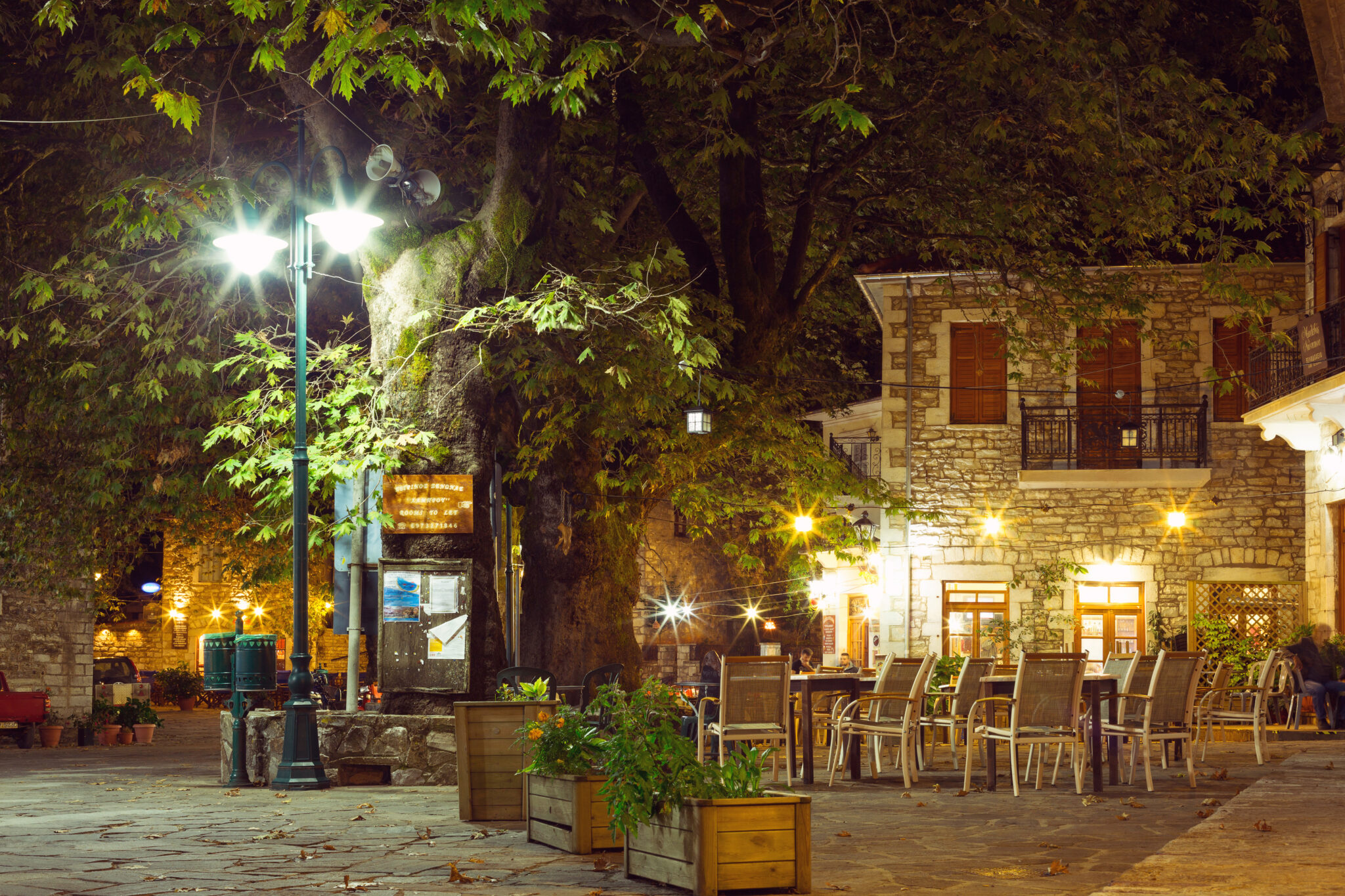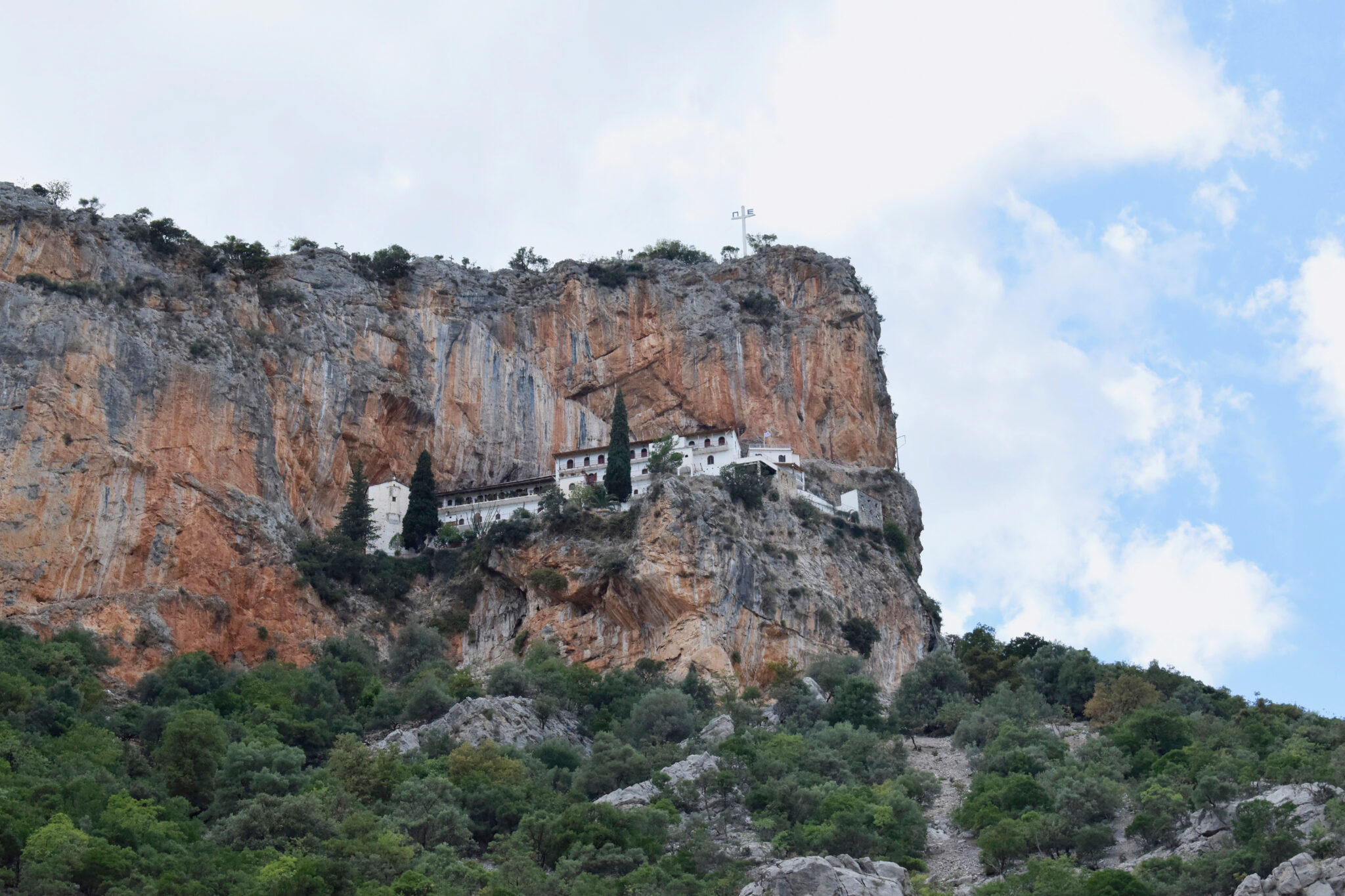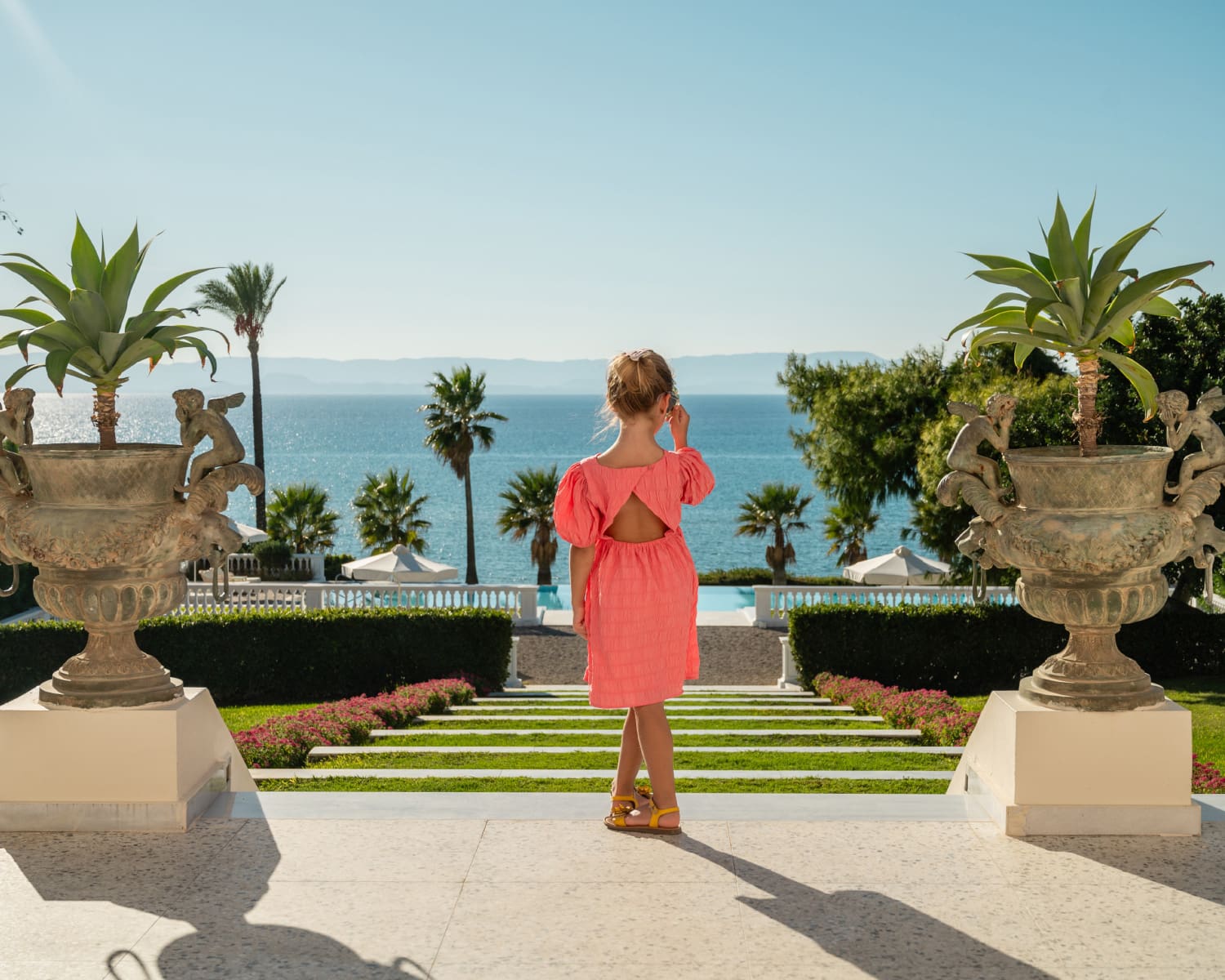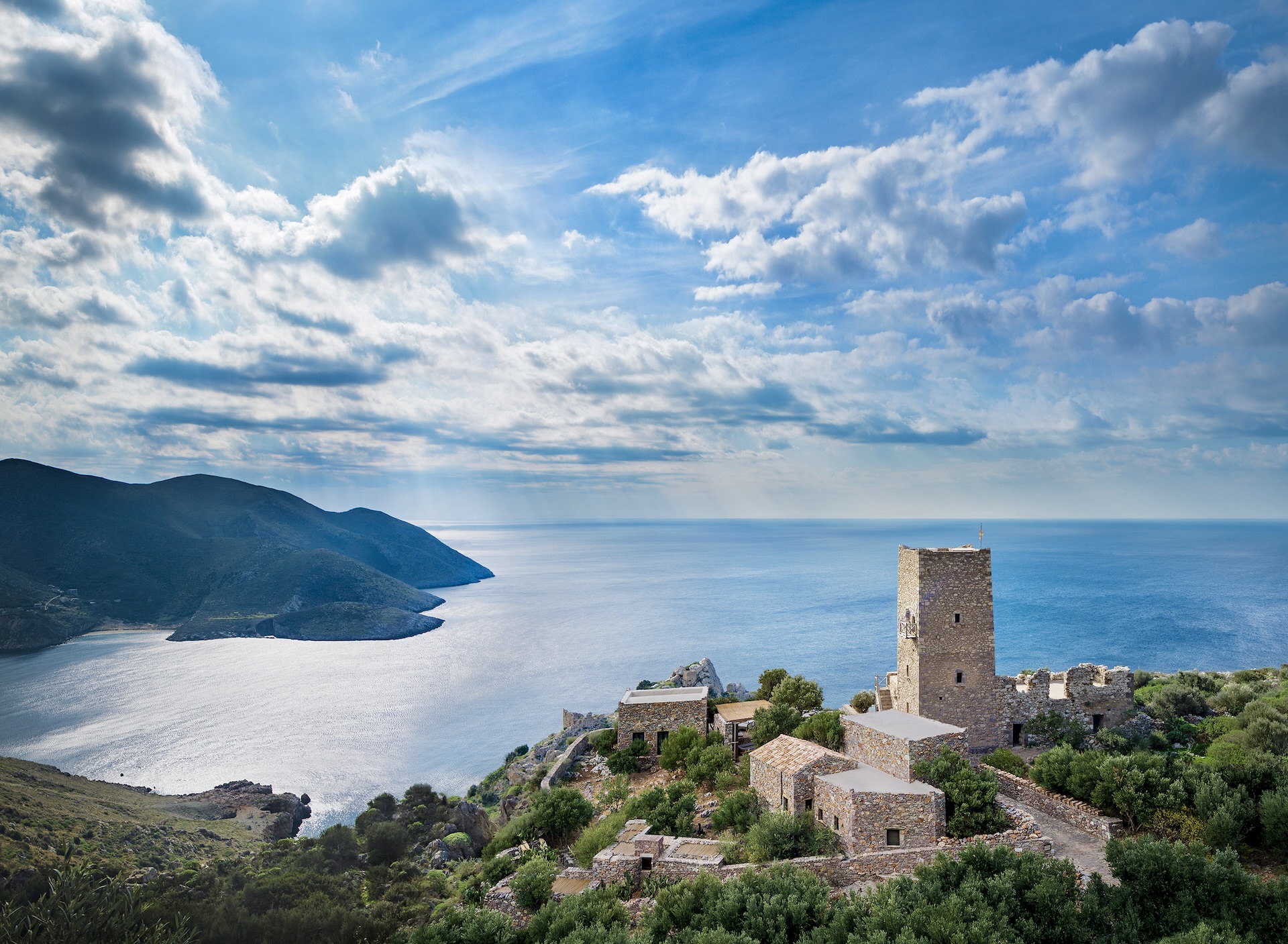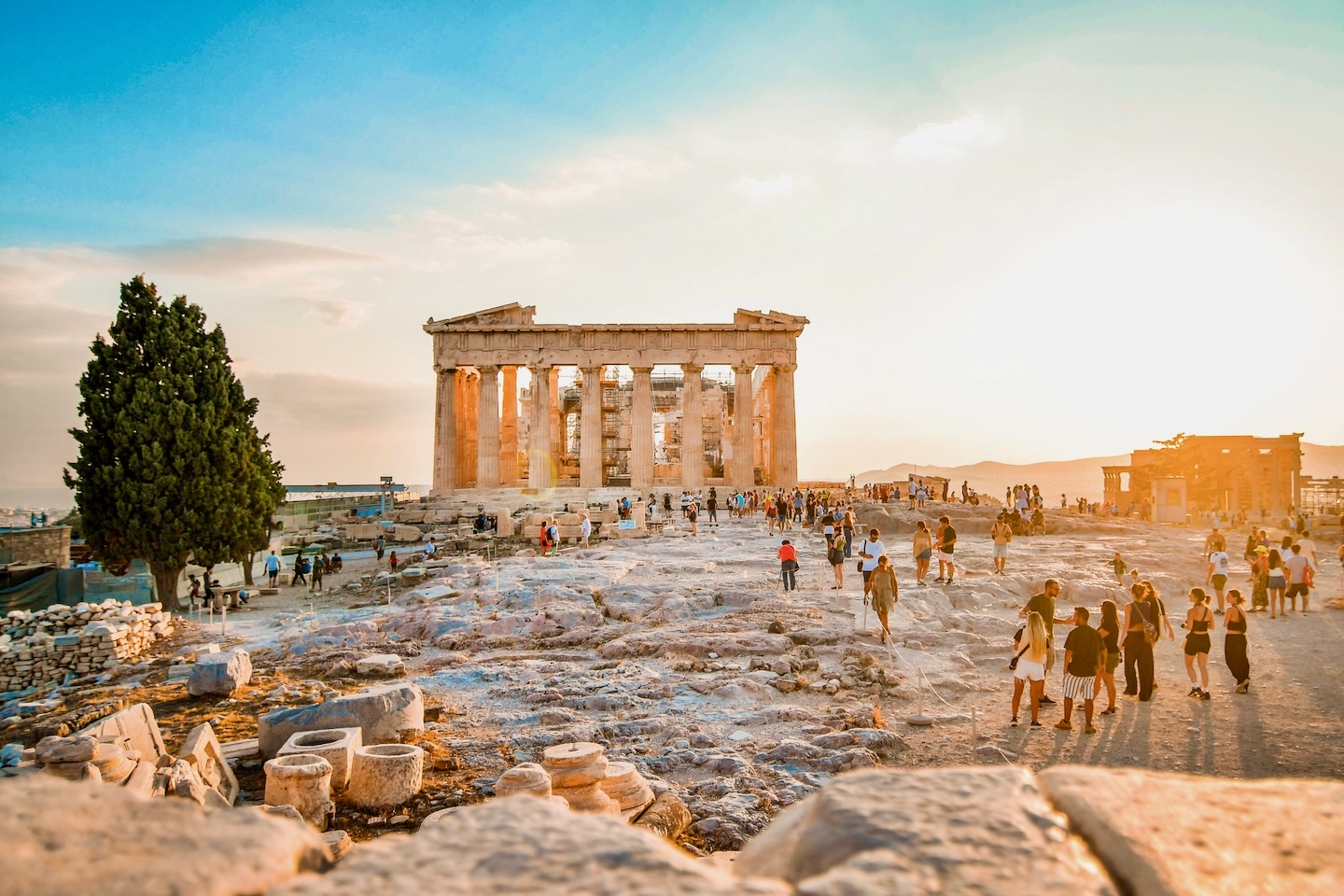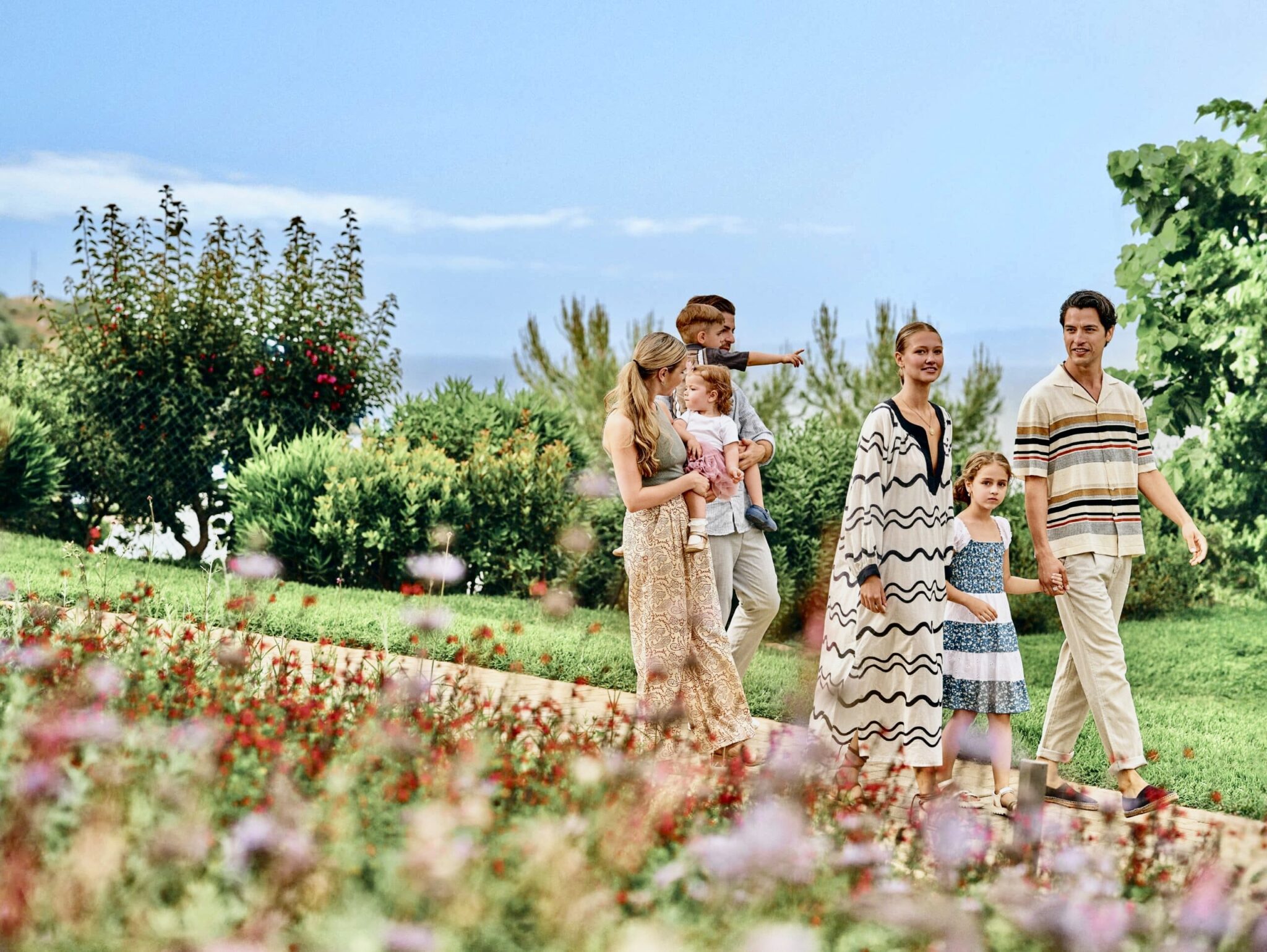“In your article, make sure to write that we also speak Tsakonian [the only living descendant of the Doric ancient Greek dialect],” noted Mr. Spyros, an elderly gentleman. Leonidio, in eastern Peloponnese, where this dialect is spoken, was once the capital of the Tsakonian region, a status its residents remain proud of, as becomes instantly apparent when entering this seaside village. Visitors are greeted by welcome signs in the Tsakonian language that make no sense to outsiders, with necessary translations below.
While heading deeper into the village, in search of its centre, you soon realise there actually is no centre, just a road that winds around houses, old mansions, yards and shops, zig-zagging left and right, with both narrow and wider sections. Road mirrors on posts help drivers see oncoming traffic at narrow passages, not suitable for big cars. The road to Leonidio was developed belatedly, compared to road projects in other provincial parts of Greece. Before the local road’s arrival, contact with the outside world was made via the sea and Plaka, Leonidio’s harbour.
All the local activity now takes place on the village road, splitting Leonidio into two sides. To the right, towering red rocks are used for rock climbing, while, to the left, a small plain reaches the sea. Leonidio does not possess the glamour of northern neighbour Nafplio, or the scale of Argos and Sparta, to the north and south, respectively. It is a small town that lives at its own pace. The region’s seaside road virtually ends at Leonidio, its continuation, a difficult route to Sparta, running through mountains.
In summer, the number of people here grows sharply, drawn by the region’s sea. In more recent times, a growing number of travellers have also been visiting Leonidio during other seasons, appreciating the destination’s peacefulness and sea-and-mountain combination.
The road headed for the sea and the Plaka district, Leonidio’s harbour, is sided by orchards with orange trees, lemon trees, tomato and potato cultivation, and, naturally, Leonidio’s most renowned product, eggplant. Locals cook eggplants in all sorts of ways. They are used for papoutsaki and imam recipes, are fried, baked with cheeses, used to make dips, salads, pizzas, spaghetti, and pies.
If wishing to continue further south, for Lakonia, the first stop is Kosmas, a village that is the last within the Arcadia region. Situated 1,150 metres above sea level, it served, over the ages, as a stopover for travellers cutting across the Mount Parnonas slopes, headed from Arcadia to Sparta. Even today, it is still a good place to stop at. The road runs by Kosmas’ vast village square, with a church and three enormous centuries-old plane trees, offering shade all over. The trees are believed to date back to 1883.
It is also worth stopping at the Eloni monastery, 17 km from Leonidio, on the way towards the village Kosmas. The monastery, built in 1809, is wedged between the red rocks. Dozens of lit lanterns hanging inside, offerings made by the faithful, create an impressive image.
Food
En Leonidio (Leonidio, +30 27570 22068), the village’s most renowned food spot, serves pizza. Its wooden shelves feature various old objects for décor, including vases and lanterns, giving the impression of a small folk art museum.
The stretched wooden tables and scents floating out of the kitchen give it away. Pizzas, spaghetti served in earthen pots, salads, as well as grilled meat are all on the menu. We really liked the pizza topped with local Tsakonian eggplant, feta, olives, onion, peppers and tomato.
Elsewhere, the Mitropolis restaurant (Leonidio, +30 27570 29115), with tables at the square and a great view of the imposing red rocks, serves classic Greek cuisine, including chops, roast lamb, rooster in wine sauce, and soutzoukakia (spicy oblong meatballs in tomato sauce).
If wishing to have a fish meal, Myrtoon (Poulithra, +30 27570 51339), a seaside taverna 7.5 km from Leonidio, serves fresh fish and seafood. For good coffee with a view of the rocks, head to Terpno (Leonidio, +30 27570 22800) or Protokollo (Leonidio, +30 27570 29019).
Read also:
Enjoy one of the most beautiful train rides in Europe in this quaint Greek village



